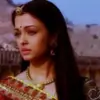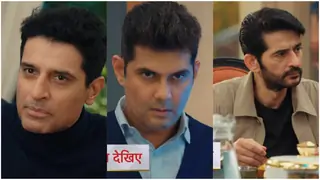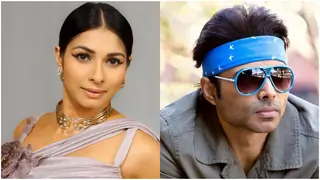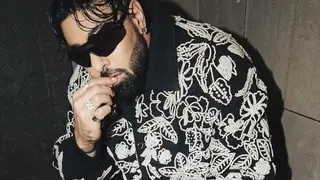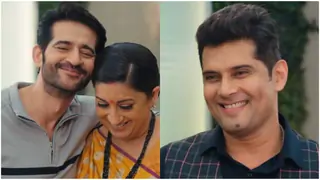This may seem a contentious post but really speaking it is a 'thinking aloud' post. I am not sitting on judgment on any character discussed here and request you also not to do the same on me ;-) However, would love to hear your views and am sure to leave the thread with some learnings from you all.
Based on my limited knowledge of history and based on what my heart says, here's my view on the The Greats - Alexander the great, Ashoka the great and Akbar the great.
Before that, first I would like to define to myself what would be 'great' to me - exceptionally skilled or exceptionaly achieved in an area and 'the great' is one with none to surpass in the said area, be it on physical or mental capabilities . So, there can be many 'greats' and 'the great' obviously in different areas, for each area.
Alexander was the great warrior of his time and so was Akbar the great warrior, strategist of his time, so was Ashoka. They owned the maximum expanse of land of their time. I am specifically saying time, as it is always relative. For instance, Manu was the ruler of the entire world once, likewise King Ambarish or even King Ravana and likewise, later the British Colony etc. And, these leaders of our topic have shown in their greatness in some other qualities also. But these greats, were they greats' in all' sphere? Also, are the the greatest? Simple question otherwise would be, why would they bow down in front of anyone else then - be it the Sufis or the Saints. Obviously, one bows down to one whom one acknowledges as superior; in other words, bows in front of whom one considers oneself and one's achievement's small. Also, there is a difference between Akbar talking about the glory of Jaimal & Patta and me, isn't it?
This now brings us to the question - Then who is the greatest or the greater than the great or 'THE great? Well, immediate answer would be God, Who is the zenith of any great quality and Who is forever unsurpassed. But, we are talking in mortal terms now, and let us stick to that. And the above question also leaves us wondering if anybody can be really called 'The great' in an all-encompassing manner or specifically called great for their specific achievements, for example, a great warrior, a great poet etc.
Now, my second thought...
I would like to go back to my definition of great'. Can the definition be exceptionally skilled or exceptionally achieved alone? In that case, why is Hiranyakashipu of the yester time or the Hitler of the recent times not called great? Or the ones like Jallianwalabagh massacre not called acts of glory? So many were incapacitated and brought under control anyway right? So, there is a qualifier to the definition - greatness' achieved in a great' manner. And what is that great manner, any normal human would know 'the right way in accordance to the situation', more importantly, 'the right intent'. So, more than what was achieved, how it was achieved is more important, and more than that, why it was achieved is much more important?
With this in mind, if we look at the intent of Alexander's conquest and thereby the epithet The great'...well, am not sure. Yes, he is 'The great' military commander of his time and I admire his abilities as the greatest warrior then. But, the intent behind this epithet received, leaves a distaste in my mouth, I must say. All this, for just one person's individual ambition, the pride of ruling the entire world, period. And what not did this not cost? So many, many, many lives of innocent brave soldiers, families, innocents and what not? So, I cannot help but think if this was a well-deserved epithet in that sense. He went on pursuing his selfish goal, not sure if he had the time to look after his own subjects let alone the subjects of the lands he amassed. What use is of such a king or value is such an unprecented vitory or the ttle 'The great'? Here our Akbar may score well.in taking care of his subjects. But Akbar also makes me think about it...his attitude of imperialism again. Yes, he was very smart and he knew he had to win the heart of the locals for a successful administration and he did that. He got into alliance with such sorts, whom he knows will never betray him once on his side, unlike his own generals. He was an amazing strategist and a warrior, no doubt. Still, the chittor massacre, how could he justify that? Again, so much blood shed for his belief in imperialism. Wonder if it is in a way revelation of true colours? I cannot help but sit back and think if the epithet 'The great' is duly due. Well, the world may say so, but does my heart say so is all matters to me and my question remains. They may be great in certain spheres, but to put them on a pedestal with the 'THE great' tag? In the case of Ashoka also, what kind of blood shed? But, he is a transformed soul later. He made course correction. It does not matter whether it is innate or acquired. The fact that the transformation has set in is good enough. The post Kalinga effect - He did not ignore it, but thought about it and importantly acted on it too. Well, I may not be in agreement to a total ahimsa rule, as a King can never shed his weapons, he needs to use it to protect the land, but not to amass land though. For a true King, it is his people before himself. Akbar too may qualify for the welfare schemes, but not sure about any regret of his gory past. The selfishness still continued in my view (request Abhay to clarify on any transformation in Akbar). This is not to pit one against the other, but just thoughts on where each stand in my own humble view.
Now, coming to Maharana Pratap, the sensation of this forum. Maharana does not have an open epithet 'The Great', but he is viewed as great by many. And, this, though he was defeated by Akbar, the great. Because, his was a glorious defeat and it is any day more praiseworthy than a distasteful victory. This whole thought series triggered off after reading Abhay's post on Jaimal and Patta. Maharana and his great generals, comrades and all his soldiers, have acted to their best in the limiting situation, in the righteous manner with only the pure intent of saving their motherland, not to plunder anyone or earn a name. This is a holy war indeed. As my friend Rati had shared, it is not unnecessary bloodshed in this case, the land got sanctified even more by this bloodshed. Each of the soldiers may not be the best in wielding their weapons, still they are the great ones of the day as they gave their lives unhesitatingly to protect their mother. No wealth, no power, nothing, just nothing could lure them, they stood by their values and faith. Maharana's was a lone battle even after Chittor fell. Literally, the entire nation, with all its wealth and resources were against him or pitted against him. His own Rajput brothers, even his own family turned against him and waged war on him. Still, there was no compromise. To me, this guts and bravery looks tall even in front of Alexander's! And, he fought to save his motherland and reclaim her glory, not to annex more and more to it. No wonder he won the heart of The great' and great many.
He may not have the epithet 'The great' nor the history teachers would be dinning this message in our head unlike in the case of the other three. But the question is - did the history lessons and The great ones mentioned there, impact me, inspire me, awe me like Maharana and other such great heroes of the land, even it if it be the not so glorified Jaimal or Patta in our text books? We may regard 'The greats' for some specific qualities in them. And we know they had great writers who talked so much about them too. But, the question is, how much have they impacted us really - atleast me? Are 'The greats' of history books able to evoke the respect and emotions that Maharana and his team able to evoke in one? Are they able to make me feel proud that I am part of a nation that they belonged to? These questions remain...
And the land mass that one may have conquered or the wealth possessed or even the superior administration of a great kings could be surpassed by someone else at a later point in time. But such great heroes of the land remain in our thoughts forever. And there can never be a time when their achievement might look small in comparison in future. The sacrifice made will remain in its pure glory and retain its exalted position in our hearts forever, where it matters. And I did ask myself if I am seeing these heroes great because we share the land, and pat came my own reply that any such act with pure, unselfish intent by anyone in the globe for their own motherland or for any great cause will make me see them great!
Good Day!








